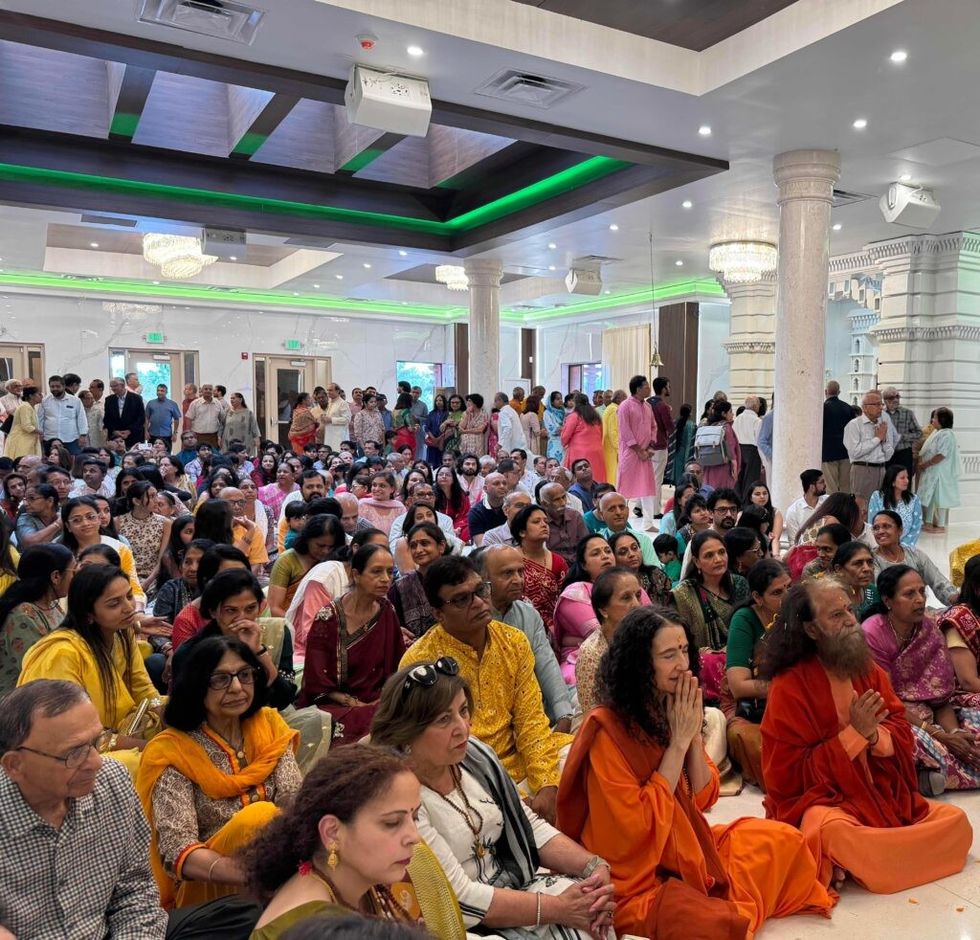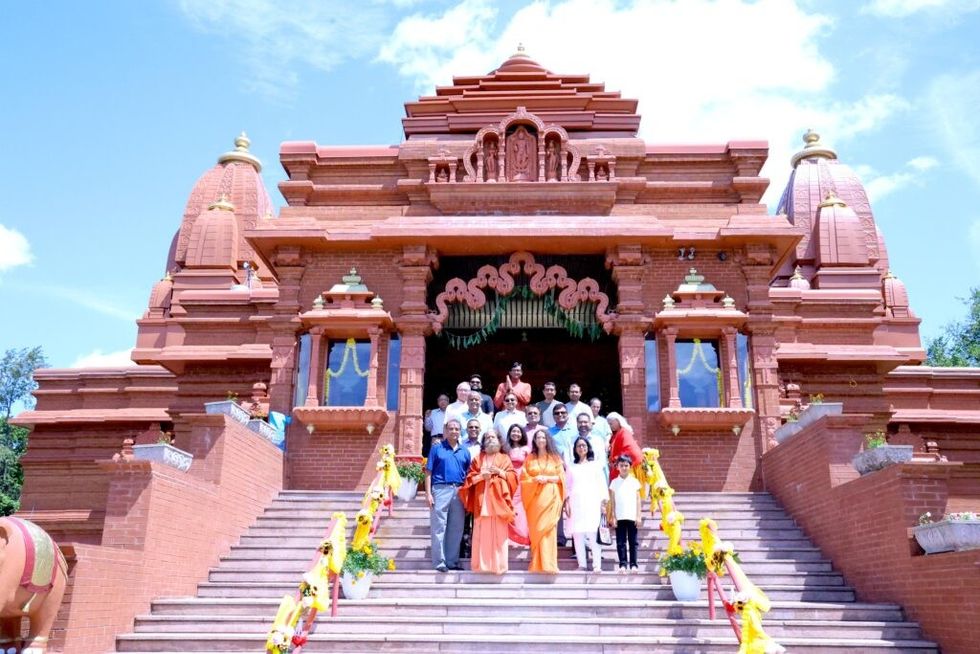The Hindu-Jain temple of Monroeville, Pittsburgh, US, celebrated its 40th anniversary with an event on 11 August, highlighting its unique role in promoting religious unity.
Established in 1984 by Swami Chidanand Saraswati, president of Parmarth Niketan, Rishikesh, the temple is notable for being the first where Hindus and Jains worship together, including both Shwetambar and Digambar sects of Jainism.
The event began with a "Shikhar Puja," where Swami Chidanand, Sadhvi Bhagawati, and temple leaders were elevated by cranes to pour consecrated water on the temple’s five domes. This was followed by a havan/yagna ceremony led by the temple priests, invoking blessings for peace and unity.
In his address, Swami Chidanand emphasised the temple's mission of fostering unity: “This temple is not merely a place of worship; it is a historic beacon of unity and oneness. We are called to thrive together, hand in hand, heart in heart, and to extend the power of our united community to the world.”
He also urged the community to support their ancestral roots in India, stating, “Your karma bhumi is here in America, but never forget your matri bhumi—Bharat. Use your resources to uplift your village, to build schools, hospitals, and colleges.”
Sadhvi Bhagawati spoke on the temple’s founding during a time of significant challenges for Indian immigrants in America. She urged the community to keep the temple as a living space of connection with the divine, rather than letting it become a mere symbol of the past.






